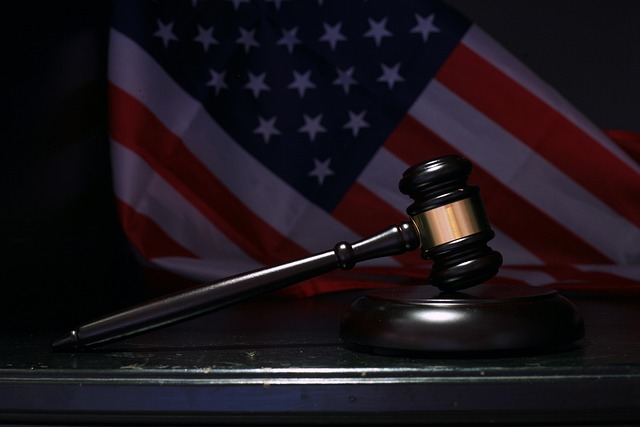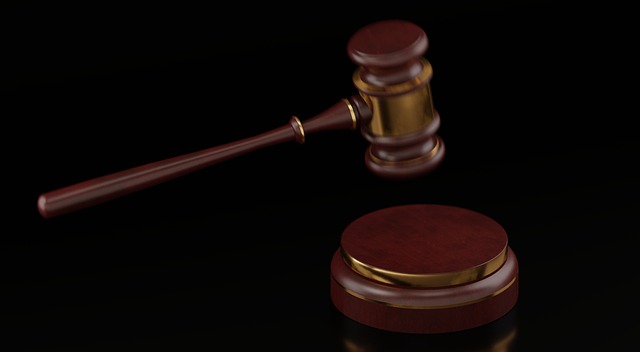Whistleblower protection lawsuits hinge on plea negotiations, which offer a strategic path to resolve cases outside of trial. Defendants negotiate reduced charges or sentencing in exchange for guilt admission, while whistleblowers secure beneficial outcomes like cost savings or immunity. Balancing swift resolutions with justice requires careful navigation by attorneys, who must advocate for their clients' rights while managing public perception. Early plea negotiations and evidence-based defenses are key tactics for defendants, leading to favorable outcomes, resource conservation, and fairness for all parties involved, ultimately affecting trial results.
Whistleblower Protection Lawsuits are crucial mechanisms safeguarding individuals who expose illegal or unethical activities within organizations. This comprehensive guide explores these lawsuits, focusing on plea negotiations as a key strategic element. We delve into how plea negotiations influence trial outcomes, offering insights from expert analysis. Understanding this dynamic is essential for both plaintiffs and defendants navigating the complex landscape of whistleblower cases, ultimately shaping strategies for effective defense and advocacy.
- Understanding Whistleblower Protection Lawsuits: A Comprehensive Overview
- The Role of Plea Negotiations in Whistleblower Cases
- Analyzing the Impact of Plea Bargains on Trial Outcomes
- Strategies for Effective Defense in Whistleblower Protection Suits
Understanding Whistleblower Protection Lawsuits: A Comprehensive Overview
Whistleblower Protection Lawsuits are a crucial aspect of ensuring accountability and transparency within organizations. These legal actions protect individuals who expose illegal or unethical activities from potential retaliation, offering them a safe avenue to stand up against corporate wrongdoings. Understanding how these cases unfold is essential, especially when it comes to plea negotiations.
During the course of a whistleblower lawsuit, plea negotiations play a pivotal role in shaping the trial’s outcome. In many instances, defendants may offer pleas that result in a complete dismissal of all charges, providing an alternative to a full-scale trial. This strategic maneuver can be beneficial for both parties, as it allows for quicker resolution and potential cost savings. However, whistleblowers must carefully consider their options, ensuring that any agreement doesn’t compromise the integrity of their initial revelations, which are often the catalyst for significant changes across the country.
The Role of Plea Negotiations in Whistleblower Cases
Whistleblower protection lawsuits often navigate complex legal landscapes, and plea negotiations play a pivotal role in shaping trial outcomes. These negotiations allow both parties—the whistleblower and the prosecution—to agree on terms that can potentially resolve the case before it reaches a jury. By engaging in open dialogue, prosecutors can gain valuable insights into the strength of evidence, while whistleblowers can secure more favorable outcomes, such as reduced penalties or immunity from punishment.
Understanding how plea negotiations affect trial outcomes is crucial across the country for individuals facing charges related to exposing fraudulent activities. Unlike general criminal defense strategies, which focus on challenging the prosecution’s case, plea negotiations emphasize finding common ground. This approach can be a game-changer in avoiding indictment and ensuring that whistleblowers receive just treatment, especially when they are instrumental in uncovering significant wrongdoings within organizations.
Analyzing the Impact of Plea Bargains on Trial Outcomes
The process of plea negotiations plays a pivotal role in shaping trial outcomes, particularly in whistleblower protection lawsuits. When corporate and individual clients face legal repercussions for alleged wrongdoing, they often have the option to enter into plea bargains. These negotiations involve striking a deal with prosecutors, where the defendant agrees to plead guilty or no contest in exchange for reduced charges or sentencing. Understanding how these discussions affect trial strategies is essential for both general criminal defense attorneys and those advocating for whistleblowers.
In the context of whistleblower suits, plea bargaining can be complex. Philanthropic and political communities often find themselves at the center of such cases, where revealing information about corporate misconduct or governmental corruption can lead to legal battles. Plea negotiations allow for a more controlled outcome, potentially averting a lengthy and publicly scrutinized trial. However, it is crucial to consider the impact on the broader narrative, as plea bargains may not always reflect the full scope of the truth. Balancing the need for a resolution with ensuring justice for whistleblowers and holding accountable those who engaged in unethical practices remains a delicate task within these legal proceedings.
Strategies for Effective Defense in Whistleblower Protection Suits
Whistleblower protection lawsuits pose significant challenges for defendants, but a strategic defense can lead to winning outcomes. One key tactic is engaging in plea negotiations early and often. By offering alternative resolutions before trial, companies can potentially avoid costly jury trials and secure more favorable agreements. This proactive approach not only saves resources but also demonstrates a commitment to resolving the matter amicably, which can be beneficial during subsequent legal proceedings.
Furthermore, effective defense strategies should focus on challenging the validity of the whistleblower’s claims. This involves scrutinizing the evidence presented, questioning the motive behind the disclosure, and highlighting any procedural irregularities. A well-prepared defense, combined with a thoughtful approach to plea negotiations, can lead to challenging defense verdicts that protect companies from unnecessary legal repercussions while upholding fairness in the process for all parties involved.
Whistleblower protection lawsuits play a pivotal role in upholding ethical standards and ensuring accountability within organizations. By understanding the dynamics of plea negotiations and their impact on trial outcomes, legal professionals can better navigate these complex cases. As seen through analyzing plea bargains, strategic defenses are crucial to protecting whistleblowers while achieving just resolutions. This comprehensive overview highlights the importance of balanced approaches that honor the integrity of disclosures while considering the broader implications for all involved parties.






